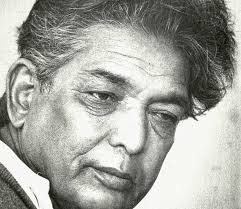Shatrughan Sinha (born Shatrughan Prasad Sinha on 9 December 1945) is an Indian film actor turned politician.He is an alumnus of the Film and Television Institute of India Pune.He got his first break in Bollywood by Dev Anand in Prem Pujari where he played a very small role of a a Pakistani military officer ,Subsequently, he got a small role as a police inspector in Mohan Sehgal’s Sajan in 1969.This film released first so we can say that his first released film was Sajan in 1969.
Shatrughan Sinha had started making his presence felt in the film circuit within a year of his entry into the films. He was a bit loud-mouthed but his fellow actors were understanding his personality gradually. He became good friends with Mumtaz and Sanjeev Kumar. Mumtaz empathized with the newcomer Sinha and recommended him for a role in Khilona (1970). She helped him to boost his confidence during his early days. If the superhit Khilona brought him the much-needed recognition, Gulzar’s Mere Apne (1971) raised him to the pedestal of a star. He played the role of a street don who has bitter enmity with his rival Vinod Khanna. He was able to make that much-needed impact with this role and his co-star Meena Kumari was all praise for him.
Initially he played supporting roles in many films and was appreciated as villain,His dialogues and style were highly appreciated by cinema lovers.He got the distinction of getting claps by the audiance when he beats the Hero of the film.
He became a hero later on and started playing negative as well as positive roles.His film Kaalicharan (1976)established him as hero. The movie proved decisive in his career and he started doing more hero roles after this. His heroine in the movie, Reena Roy, went on to star with him in many more films. The Ghai-Sinha-Roy trio delivered another hit right after Kalicharan in the form of Vishwanath(1976). Sinha then worked with the best directors of those times: Prakash Mehra (Jwalamukhi, 1980), Manmohan Desai (Naseeb, 1971), Ramesh Sippy (Shaan, 1980), Raj Khosla (Dostana, 1980) and Yash Chopra (Kaala Patthar, 1979). In Kaala Patthar, Dostanaand Naseed, Sinha and Amitabh Bachchan brought the best out of each other.
Shatrughan Sinha is a born Orator and was always a Peoples' Person - He reached the pinnacle of success as an Actor in a very short time. In the year 1974, Shatrughan came into meaningful contact with Lok Nayak Shri Jaiprakash Narayan Ji and experienced his Peoples' Movement.
This was a major turning point in his life, especially since Shatrughan always wanted to contribute to Society in whichever humble way he could. He joined the Bharatiya Janata Party and has been their biggest Star Campaigner for their Central as well as State Elections, using his charismatic persona & oratorical skills to the hilt.
Shatrughan Sinha is the First Member of the Indian Film Industry to become a Union Cabinet Minister, Government of India. He is also the only Non-Medical Practioner in the World to become a Health Minister - All thanks to his ardent commitment to the Social Causes of Anti-Tobaco and Anti-Drug Campaigns along with Cancer Awareness and Eye Donation Movements
.
He won the Patna Sahib Lok Sabha constituency in Bihar during the Indian general elections, 2009. He defeated another cinema celebrity Shekhar Suman. Out of a total of 552,293 votes polled, Sinha received 316,472 votes. He won the seat in the subsequent Indian general elections, 2014, as well.
Song from Sabak 1973
Song from Blackmail 1973
Song from Gulam Begum Badshah 1973
Song from Gai Aur Gori 1973
Song from Dost 1974
Song from Badla 1974
Song from Aadmi Sadak Ka 1977
Shatrughan singing in his own voice
Song from Dostaana 1980




















